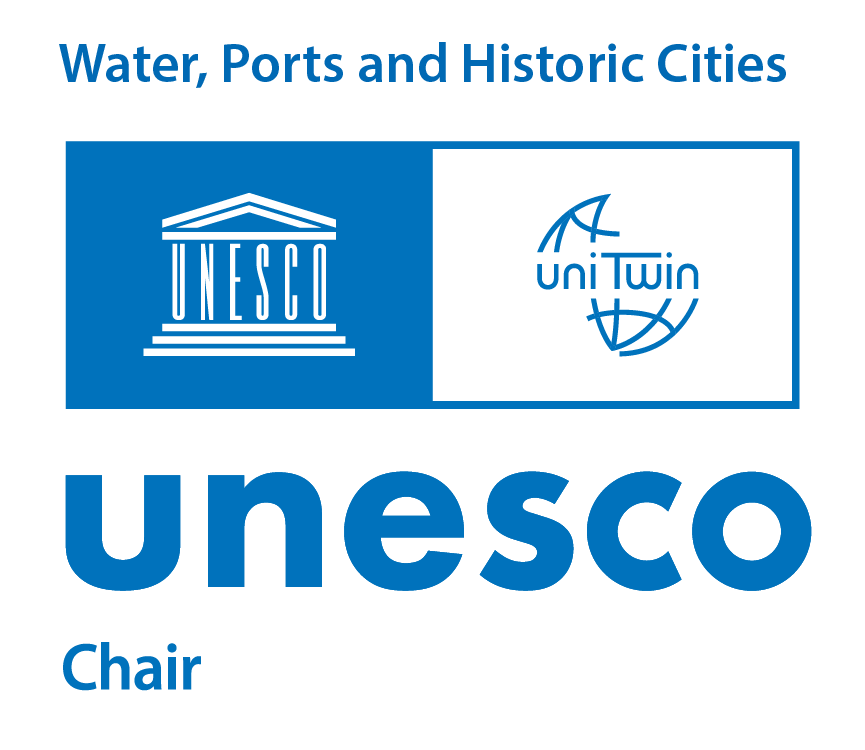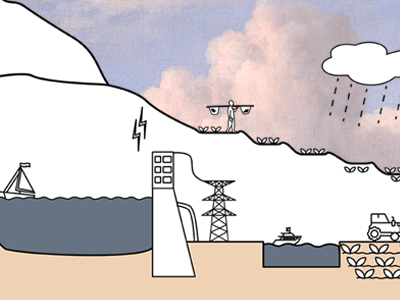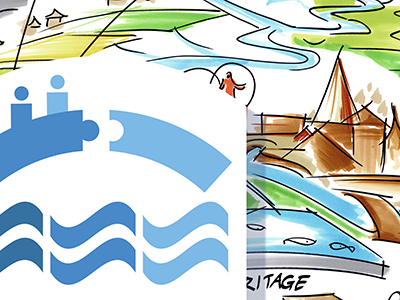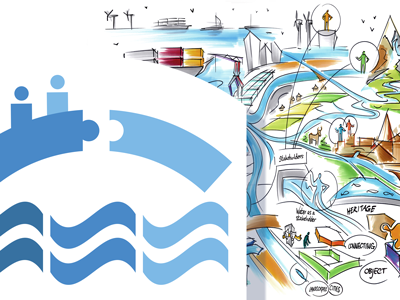Overview
In this course we will analyze examples of port cities from a multi-disciplinary, cross-cultural perspective. You will develop the skills to identify and address the challenges port cities face now and into the future.
Port cities are dynamic environments. They face ever-changing challenges and demands from port activities under continually evolving economic and environmental circumstances. They also offer a rich social and cultural environment.
If you are a professional involved in the development and running of port cities this course will offer you a fresh perspective on the complex spatial and socio-cultural relations between ports, cities and regions and between water and land, that are typical for urban deltas, rivers and canals around the world. This course will provide you with the insights and tools to understand and transform port city regions. By employing a comprehensive cross-cultural perspective you will make better decisions when addressing the challenges port cities face today and when planning for a sustainable and socially just future of your port city in line with the UN Sustainable Development Goals.
If you are a master level student with an interest in a multidisciplinary approach to the development of cities, with a connection to the built and natural environment this course will offer you an insight into the workings of port city development, preparing you better for a possible career in this area.
If you live in a port city this course will help you understand the development of your city, appreciate the hidden potential and help you influence the way your port city deals with issues such as climate change and rising water levels in the future.
What You'll Learn:
After taking this course, you will be able to:
- Recognize port cities as a particular type of space, and appreciate their defining characteristics.
- Analyze the complexity of the networks of stakeholders in port cities.
- Analyze moments of change in port cities both global and local and their causes and effects.
- Reflect on contemporary social, economic and environmental challenges and the way decisions taken in the past are still influencing the present and the future.
- Assemble a value-based approach to decision-making in port cities for sustainable development and the benefit of all relevant stakeholders.
Quote from Learner
"This course is a wonderful opportunity to learn about the experiences of other port cities around the world and learn best practices and strategies that can be applied in other countries." - Claudia Fuertes, Architect from Mexico
This course is brought to you by

Details
Port city regions are at the forefront of many urgent contemporary issues such as migration, climate change, digitization, etc. Addressing these challenges and developing sustainable solutions, requires more than technical interventions, it requires rethinking and redesigning the basic spatial and socio-cultural paradigms that prevail at present.. In this course we will analyze examples of port cities from a multi-disciplinary, cross-cultural perspective. You will develop the skills to identify and address the challenges port cities face now and into the future.
Course Syllabus:
Week 1: What are Port Cities?
- Explore the characteristics that port cities have in common and those that separate them from other cities.
- Examine new and varied perspectives on the relationship between the port and the city, with attention to socio-cultural aspects.
Week 2: Who makes Port Cities?
- Understand the complex networks, formal and informal, of a broad range of stakeholders that make up the port city.
- Look at the influence stakeholders have on each other and on space, and discover how their needs and interests often conflict.
Week 3: What catalyzes change in port cities?
- Identify moments of change in port cities and their causes and effects, both globally and locally.
- Review how causes for change, such as catastrophes, trigger responses to change by inhabitants and authorities.
- Learn how to use tools to implement change and respond to challenges.
Week 4: What challenges are port cities facing?
- Discuss the contemporary social, economic and environmental challenges to port cities and the way past decisions are still influencing the present and the future.
- Explore the role of values in the decision-making of various stakeholders and their conflicts which may arise from the challenges.
Week 5: How to respond to challenges in port cities at times of change?
- Learn how to set goals to inform decision making in response to a challenge.
- See how the UN Sustainable Development Goals are tailored to port cities and the stakeholder tensions they lead to.
- Develop a value-based approach to decision-making.
You will choose to work on a goal that relates to your port city and the challenges it faces and present the results of your research.
Other instructors
Paolo De Martino
Architect and PhD Candidate
Delft University of Technology
Maurice Harteveld
Assistant Professor
Delft University of Technology
Amanda Brandellero
Associate Professor
Erasmus School of History, Culture and Communication
Hilde Sennema
PhD candidate
Rotterdam University
Asma Mehan
Postdoctoral Research Fellow
Leiden University
License
Unless otherwise specified, the Course Materials of this course are Copyright Delft University of Technology and are licensed under a Creative Commons Attribution-NonCommercial-ShareAlike 4.0 International License.
Qualifications
Chartered Engineering Competences
All our online courses and programs have been matched to the competences determined by KIVI’s Competence Structure, a common frame of reference for everyone, across all disciplines, levels and roles.
These competences apply to this course:
- A1: Extend your theoretical knowledge of new and advancing technologies.
- E3: Undertake engineering activities in a way that contributes to sustainable development and a circular economy.
Admission
This is a Massive Open Online Course (MOOC) that runs on edX.
Prerequisites
None


